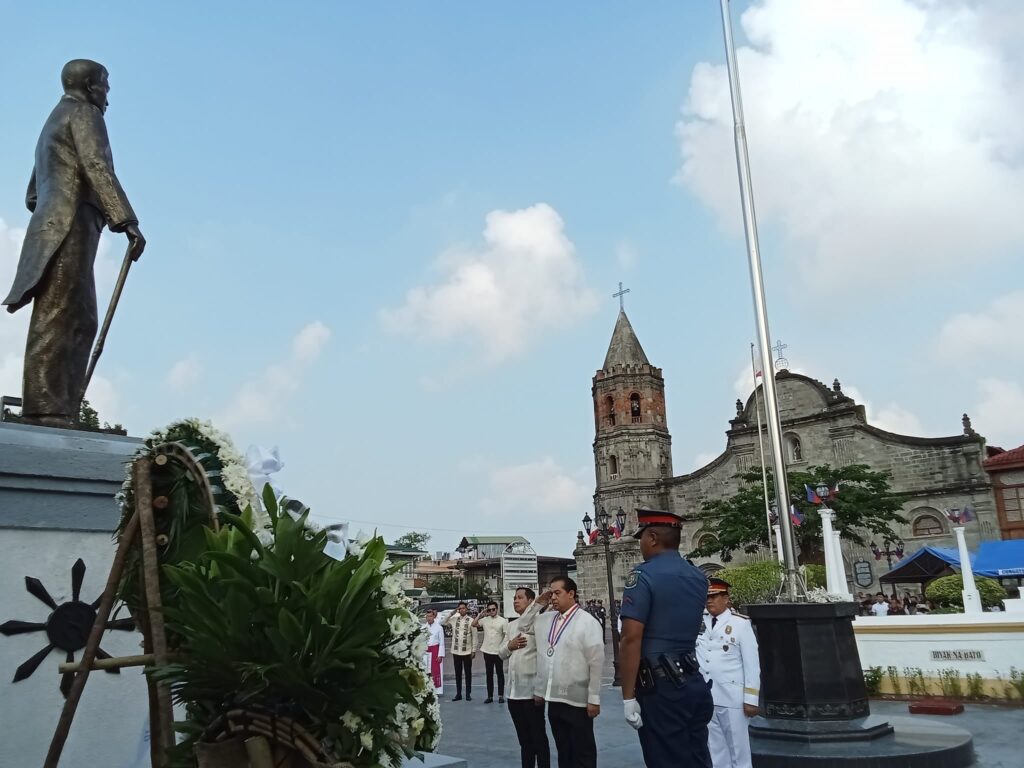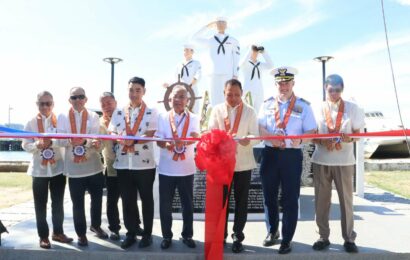
CITY OF MALOLOS, Bulacan (PIA)- House Speaker Martin Romualdez recognized the role of the Malolos Congress in the validity of the Proclamation of Independence of the Philippines by then General Emilio Aguinaldo on June 12, 1898.
During his keynote speech in front of Barasoain Church in the City of Malolos, Bulacan at the commemorative program for the 126th Anniversary of Philippine Independence, he cited that the ratification withstood the test of time for the last 126 years.
For instance, the June 12 Proclamation was never repealed despite being disturbed by more than 40 years of American occupation under a civil government and the commonwealth until they recognized it in 1946. Perhaps, not to mention the four dark years of World War II.
Even then President Diosdado Macapagal also recognized the ratification of the Malolos Congress. During his incumbency, he issued Proclamation No. 28 on May 12, 1962 which declared June 12 as a special public holiday in the country in commemoration of the Filipino’s declaration of freedom and independence.
The proclamation became permanent as he signed Republic Act 4166 proclaiming June 12 as Philippine Independence Day instead of July 4granted by the Americans.
Speaker Romualdez pointed out that without the ratification of the Malolos Congress, the June 12proclamation is nothing.
Historical data from the National Historical Commission of the Philippines (NHCP) shows that the Malolos Congress in their session in Barasoain Church on September 29, 1898 ratified the June 12 proclamation of independence.
This was followed by the completion of the drafting of the 1899 Constitution and passed by Malolos Congress on January 21, 1899
The speaker assured the public that the present19th Congress and its future successors willpreserve the independence by adhering to the ratification of the Malolos Congress and its 1899 Constitution.
He also reaffirmed the commitments of the present Congress to pass remaining vital legislation pieces to ensure many Filipinos free from hunger, illiteracy, joblessness and protect the country’s sovereignty and territory.
Among those priorities are the restoration of the mandate of the National Food Authority (NFA) as the stabilizer of the price of rice and to make it cheaper at least P29.
On Education, there is the Academic Recovery and Accessible Learning (ARAL) Program bill, amendments in the Corporate Recovery and Tax Incentives for Enterprises to Maximize Opportunities for Reinvigorating the Economy or the CREATE MORE bill for further job generations, and the Self-Reliant Defense Posture Revitalization bill that will boost the modernization of the Armed Forces of the Philippines (AFP) as well as the Philippine Coast Guard.
Those bills are just part of around 44 bills being prioritized by the Legislative-Executive Development Advisory Council (LEDAC) to support the Marcos administration’s vision towards a New Philippines or the ‘Bagong Pilipinas’.





